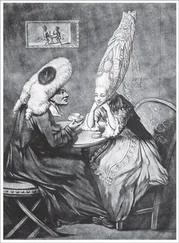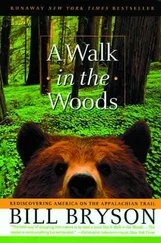Bill Bryson - Notes from a small Island
Здесь есть возможность читать онлайн «Bill Bryson - Notes from a small Island» весь текст электронной книги совершенно бесплатно (целиком полную версию без сокращений). В некоторых случаях можно слушать аудио, скачать через торрент в формате fb2 и присутствует краткое содержание. Жанр: Современная проза, на английском языке. Описание произведения, (предисловие) а так же отзывы посетителей доступны на портале библиотеки ЛибКат.
- Название:Notes from a small Island
- Автор:
- Жанр:
- Год:неизвестен
- ISBN:нет данных
- Рейтинг книги:4 / 5. Голосов: 2
-
Избранное:Добавить в избранное
- Отзывы:
-
Ваша оценка:
- 80
- 1
- 2
- 3
- 4
- 5
Notes from a small Island: краткое содержание, описание и аннотация
Предлагаем к чтению аннотацию, описание, краткое содержание или предисловие (зависит от того, что написал сам автор книги «Notes from a small Island»). Если вы не нашли необходимую информацию о книге — напишите в комментариях, мы постараемся отыскать её.
Notes from a small Island — читать онлайн бесплатно полную книгу (весь текст) целиком
Ниже представлен текст книги, разбитый по страницам. Система сохранения места последней прочитанной страницы, позволяет с удобством читать онлайн бесплатно книгу «Notes from a small Island», без необходимости каждый раз заново искать на чём Вы остановились. Поставьте закладку, и сможете в любой момент перейти на страницу, на которой закончили чтение.
Интервал:
Закладка:
It seemed like months since I had had a conversation, and I babbled away at him with questions. What did people in Thurso do for a living? How did the castle come to be derelict? Where did they go if they wanted to buy a sofa, see a movie, have a Chinese meal not cooked by a Scotsman or otherwise experience something beyond the modest range of pleasures available locally?
Thus I learned that the local economy was underpinned by the Dounreay nuclear reactor down the road, that the castle had once been a thing of wellmaintained beauty but had been allowed to fall into decrepitude by an eccentric owner, that Inverness was the seat of all forms of excitement. I must have betrayed a flutter of astonishment at this because he smiled and said drily, 'Well, it has a Marks 8c Spencer.'
Then he took me outside, sat me in the driver's seat of a Ford Thesaurus (or something; I'm not very good at car names), gave me a quick rundown on all the many moveable stalks and dashboard buttons, and then stood by with a kind of nervous frozen smile while I activated controls that made the seatback jettison away from my back, the boot pop open and the windscreen wipers go into monsoon mode. And then, with a worrisome grinding of gears and several jerky movements, I blazed a trail from the car park by a novel and lavishly bumpy route and took to the road.
Moments later, for such is Thurso's diminutive size, I was out on the open highway and cruising with a light heart towards John O'Groats. It was an arrestingly empty landscape, with nothing much but fields of billowy winterbleached grass running down to a choppy sea and the hazy Orkneys beyond, but the feeling of spaciousness was exhilarating and for the first time in years I felt comparatively safe behind a wheel. There was absolutely nothing to crash into.
You really are on the edge of a great deal of emptiness when you ' reach the far north of Scotland. Only 27,000 people live in the whole of Caithness roughly the population of Haywards Heath or Eastleigh in an area considerably larger than most English counties. More than half of that population is accounted for by just two towns, Thurso and Wick, and none of it by John O'Groats since John O'Groats isn't a community at all but just a place to stop and buy postcards and icecreams.
It is named for Jan de Groot, a Dutchman who ran a ferry service from there to somewhere else (Amsterdam if he had any sense) in the fifteenth century. He charged 4d a trip apparently, and they will tell you in these parts that that sum became known ever after as a groat, but alas it is a pathetic fiction. It is more probable that Groot was named Groat after the money rather than it for he. But anyway who gives a shit?
Today John O'Groats consists of a capacious car park, a little harbour, a lonely white hotel, a couple of icecream kiosks and three or four shops selling postcards, sweaters and videos by a singer named Tommy Scott. I thought there was supposed to be a famous fingersign telling you how far it was to Sydney and Los Angeles, but I couldn't find it; perhaps they take it in out of season so that people like me don't carry it off as a souvenir. Only one of the shops was open. I went in and was surprised to find that there were three middleaged ladies working there, which seemed a bit excessive as I was obviously the only tourist for 400 miles. The ladies were exceedingly cheerful and chipper and greeted me warmly with those wonderful Highland accents so clinically precise and yet so dulcet. I unfolded some jumpers so that they would have something to do after I left, watched openmouthed a demo video for Tommy Scott singing perky Scottish tunes on various blowy headlands (I'm saying nothing), bought some postcards, had a lingering cup of coffee, chatted with the ladies about the weather, then stepped out into thegusty car park and realized that I had about exhausted the possibilities presented by John O'Groats.
I wandered around above the harbour, peered with hooded hands into the windows of the little museum, which was closed till spring, looked appreciatively at the view across the Pentland Firth to Stroma and the Old Man of Hoy, and then wandered back to the car. You probably know this already, but John O'Groats is not the northernmost point of the Scottish mainland. That distinction belongs to a spot called Dunnet Head, five or six miles away down a nearby singlelane road, so I went there now. Dunnet Head offers even less to the world in the way of diversions than John O'Groats, but it has a handsome unmanned lighthouse and sensational sea views, and a nice sense of being a long way from anywhere.
I stood on the gusty eminence gazing at the view for a long time, waiting for some profundity to steal over me, since this was the end of the line, as far as I was going. Part of me longed to catch a ferry to the outward islands, to follow the scattered outcrops of stone all the way up to distant Shetland, but I was out of time and anyway there didn't seem a great deal of need. Whatever its bleak and airy charms, Shetland would still be just another piece of Britain, with the same shops, the same television programmes, the same people in the same Marks & Spencer cardigans. I didn't find this depressing at all rather the contrary but I didn't feel any pressing need to see it just now. It would still be there next time.
I had one more port of call in my hired Ford. Six or seven miles south of Thurso lies the village of Halkirk, now forgotten but famous during the Second World War as a deeply, deeply unpopular posting for British soldiers on account of its remoteness and the reputed unfriendliness of the locals. The soldiers sang a charming little refrain that went
This fucking town's a fucking cuss No fucking trams, no fucking bus, Nobody cares for fucking us In fucking Halkirk
No fucking sport, no fucking games. No fucking fun. The fucking dames Won't even give their fucking names In fucking Halkirk and carries on in a similarly affectionate spirit for another ten stanzas. (In answer to the obvious question, I'd looked earlier and, no it wasn't one of Tommy Scott's standards.) So I went to Halkirk now, along the lonely B874. Well, there was nothing much to Halkirk just a couple of streets on a road to nowhere, with a butcher's, a builder's merchants, two pubs, a little grocery, and a village hall with a war memorial. There was no sign that Halkirk had ever been more than a dreary little interruption to the general emptiness around it, but the memorial contained the names of sixtythree dead from the First World War (nine of them named Sinclair and five named Sutherland) and eighteen from the Second World War.
You could see for miles across grassy plains from the edges of the village, but there was no sign anywhere of tumbledown army barracks. In fact, there was no sign that there had ever been anything in this district but endless grassy plains. I went into the grocery in investigative mood. It was the strangest grocery a large shedlike room, barely lit and nearly empty except for a couple of .racks of metal shelves near the door. These, too, were nearly empty but for a few scattered packets of odds and ends. There was a man on the till and an old guy ahead of me making some small purchase, so I asked them about the army camp.
'Oh, aye,' said the proprietor. 'Big POW camp. We had fourteen thousand Germans here at the end of the war. There's a book here all about it.' To my small astonishment, given the meagreness of the other stocks, he had a stack of picture books by the till called Caithness in the War or something like that and he handed me one to examine. It was full of the usual pictures of bombedout houses and pubs with people standing around scratching their heads in consternation or looking at the camera with those idiot grins that people in disaster pictures always wear, as if they're thinking, Well, at least we'll be in Picture Post. I didn't find any pictures of soldiers looking bored in Halkirk, and there wasn't any mention of the village in the index. The book was ambitiously priced at .15.95.
Читать дальшеИнтервал:
Закладка:
Похожие книги на «Notes from a small Island»
Представляем Вашему вниманию похожие книги на «Notes from a small Island» списком для выбора. Мы отобрали схожую по названию и смыслу литературу в надежде предоставить читателям больше вариантов отыскать новые, интересные, ещё непрочитанные произведения.
Обсуждение, отзывы о книге «Notes from a small Island» и просто собственные мнения читателей. Оставьте ваши комментарии, напишите, что Вы думаете о произведении, его смысле или главных героях. Укажите что конкретно понравилось, а что нет, и почему Вы так считаете.












